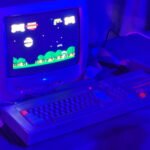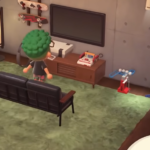TR1X and TR2X require original game assets, but are designed to ensure the 1990s Tomb Raider preservation is playable on future hardware.
While the original Tomb Raider games have been remastered and ported to current hardware, the first two titles in the series can now be found as open source ports, ensuring the longevity of the titles for games preservation.
Tomb Raider (1996) and Tomb Raider II (1997) were originally developed by Core Design and published by Eidos. Legal copies of the games — whether from the original media or a modern re-release — are required to play these new open source re-implementations, as these versions don’t include the assets (for copyright reasons). If you need them, they’re on Steam and GOG.
TR1X features
The open source Tomb Raider I features the following improvements over the original game:
- Smooth 60 FPS and modern rendering
- Rich settings and improved UI
- Photo mode
- Restored braid and skyboxes
- Jump twists and other TR2+ goodies
- Developer console and debugging commands
- Cross platform
Moves and other Tomb Raider II elements are particularly welcome!
TR2X features
- Smooth 60 FPS
- Revamped audio and windowed mode support
- Rich settings and improved UI
- Photo mode
- Developer console and debugging commands
- Cross platform
Where can you find the Tomb Raider preservation project?
If you opt to install these open source game preservation versions of Tomb Raider, spend some time on the documentation page on the website to learn the command line options for running the games under different conditions — activating expansion packs, for example.
To learn more about this project, you can visit the preservation project’s website at lostartefacts.dev. Further information is available, meanwhile, on the project’s GitHub page. To play these open source versions, hit the download links on either site — they’re designed to run on Windows, Linux and macOS. Other platforms may arrive later, along with additional features.
Affiliate Disclosure: Some of the links in this post may be affiliate links, which means I may earn a small commission if you make a purchase through those links. This comes at no extra cost to you. Thank you for your support!
Christian Cawley is the founder and editor of GamingRetro.co.uk, a website dedicated to classic and retro gaming. With over 20 years of experience writing for technology and gaming publications, he brings considerable expertise and a lifelong passion for interactive entertainment, particularly games from the 8-bit and 16-bit eras.
Christian has written for leading outlets including TechRadar, Computer Weekly, Linux Format, and MakeUseOf, where he also served as Deputy Editor.
When he’s not exploring vintage consoles or retro PCs, Christian enjoys building with LEGO, playing cigar box guitar, and experimenting in the kitchen.








